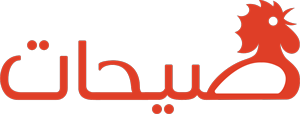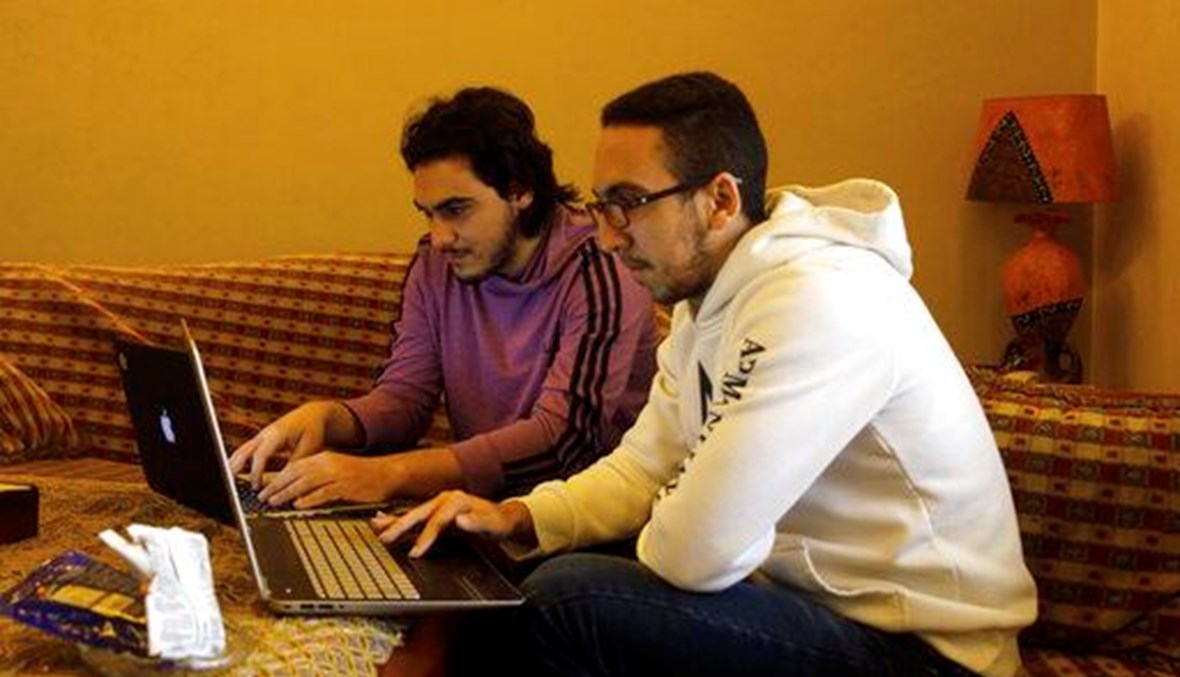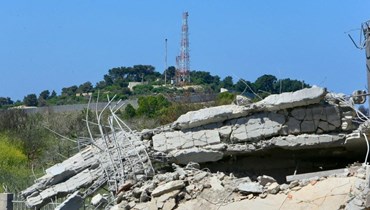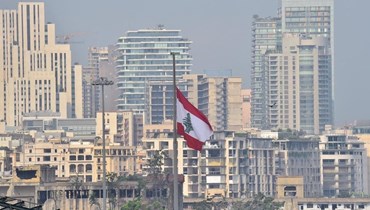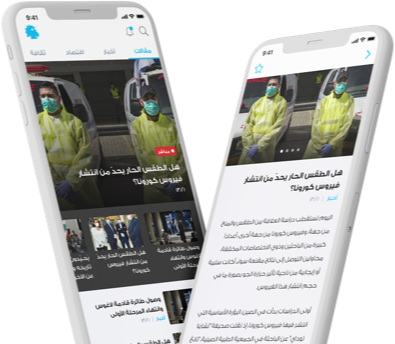All higher education components VS. same opponents in 2020-2021
24-09-2020 | 15:11
Source: Annahar
BEIRUT: With an exhausted economy and no single scapegoat to blame, Lebanon’s consecutive crises threaten the higher education’s 30+ institutions on Lebanese soil.
Amidst economic, social, and health hardships, the fate of the upcoming academic year remains undetermined to students, faculty, staff, and parents, in terms of institutional sustainability, survival, and educational quality requirements, given the now-commonly adopted remote teaching, faced by legal constraints.
Whirlwinding challenges: what are the universities facing?
To date, the Directorate General of Higher Education (DGHE) at the Ministry of Education and Higher Education (MEHE) hasn’t recognized the equivalence of remote-learning degrees, even though the parliamentary National Education and Higher Education Committee approved on May 21 the bill aimed at adopting digital remote teaching in higher education.
“A university degree’s equivalence isn’t granted by the Equivalence Committee if more than 50% of the university curriculum is acquired via remote learning, whereas chances are high that many students graduate this year with 50% or more of their university courses being taught online if this modality persists throughout the whole 2020-2021 academic year,” explained Hana Addam El-Ghali, PhD, program director of the Education and Youth Policy Research Program at the Issam Fares Institute (IFI) for Public Policy and International Affairs at the American University of Beirut (AUB).
“What would these students do then? Wouldn’t they be considered as degree holders? Vagueness is roaming,” she expressed.
Moreover, estimates from the United Nations Economic and Social Commission for Western Asia (UN ESCWA) revealed on August 19 that “more than 55% of the country’s population is now trapped in poverty and struggling for bare necessities; almost double last year’s rate which was 28%.”
With the prospect of poverty on the rise, an issue of equity proves to be imminent, especially that the majority of the higher education clientèle is the middle class, according to El-Ghali.
“Some students are now asking for a one-year gap or a semester off,” she noted. “Many will leave to study abroad, because it’s cheaper there. Parents will also question whether the return to their payments are worth it.”
El-Ghali highlighted that the current challenges in the country’s universities will reach a term with the Darwinian “survival of the fittest”. She added that some survivor universities might merge together, while others will still heavily rely on off-campus remote teaching, and rhetorically questioned whether the health care status quo will soon facilitate the normalization of on-campus classes all over again, or not.
“It is true that some expenses should have been cut since students aren’t on campus on one hand, but other new expenses are going to be incurred with remote learning, on the other hand,” specified El-Ghali.
“Some professors are asking for internet bundles. Universities are training their faculty and staff, supporting this alternative learning modality, buying certain teaching platforms, and giving students access to e-books.”
In fact, several private universities imposed the payment of tuition fees in USD in 2019, at a time when the dollar exchange rate started fluctuating, thus students were not able to comply. Ever since, these same universities started implementing austerity measures by staff and budget cuts, for instance, which also threaten staff.
The quality and credibility of teaching are also at stake, especially with the hybrid classes pattern that has started this semester. By hybrid, universities mean giving classes on and off-campus, depending on the need to access campus facilities.
Lebanon’s sole public higher education institution, the Lebanese University, also announced earlier in September that it will lean on hybrid learning in its diverse faculties during the upcoming academic year. However, this institution already suffered from structural deficiencies, now exacerbated by the pandemic and the economic freefall.
One should look at the initial calibre of faculty members, says El-Ghali, amidst an ongoing absence of quality assurance and lack of accountability in Lebanon’s universities since the pre-pandemic era.
In the same context, the Lebanese State has always adopted a policy of minimal intervention in the higher education sector, “in respect of the principle of freedom of education guaranteed by the Constitution, and since the State itself is younger than the sector in question,” said Rector of the Antonine University Father Michel Jalakh, in 2019.
This policy allowed some private academic institutions, especially those that saw the light in the post-war era, to be blinded by commercial competition, at the expense of quality and efficiency requirements.
Issued in 2014, Law 285 came as the result of multiple efforts to implement control, standardization, and accountability in the higher education field. It initiated, however, several questionings on the honesty of the councils and committees entrusted by law, to study the institutions’ structures and ramifications, an idea that would later develop into an establishment of the National Commission for Quality Assurance stipulated in Article 37, which is not yet implemented.
“I have zero motivation to study”
Dana Nasr’s university will inform its students of the status of their classes’ “location” on a monthly basis. For now, all of Nasr’s classes are remote classes.
Remote teaching is currently more organized than how it was during the previous semester according to the 19-year-old multimedia journalism student, but “everything else is moving to the worse.”
“Many instructors were affected by the Beirut explosion, so they weren’t able to teach this semester, and [given the lack of time and of financial ease], the university is employing any instructor who can just teach, maybe with lower salaries,” she said. “[Some of them] have no experience in teaching, whether on campus or online.”
“I have zero motivation to study, and of course the same applies with others.”
“Add to that the students who lost their beloved ones, the students who can’t pay their tuition fees, the students who don’t have proper internet connection and electricity, the students who can’t buy a technological device according to the current dollar exchange rate, the students who are suffering with their familys’ financial statuses, the students who don’t have a private room to study in, the students who are devastated by what’s happening, the students who lost hope on life,” she expressed.
Nasr also raised concerns about the loss of hands-on experiences in practical courses that are normally given in the campus’ labs, such as her major’s video production course that requires studio access, since “you can’t learn video production on [Cisco] Webex (video-conferencing application).”
“Students can’t buy [studio material] because they're highly expensive,” noted the student. “Will we graduate with such a limited experience?”
Of the positive outcomes of online learning, Nasr mentioned easy accessibility from home to theoretical courses, strictly, especially to the students who are now attending classes from abroad, and those who live far from campus and can’t afford dorms and transportation.
“Students still pay the same while they lose access to many facilities like the access to gym and libraries and everything else we get to experience on campus,” added Nasr. “Yet, we didn’t get refunded, and we are still expected to pay the same, even if they didn’t change the dollar exchange rate for tuition payment.”
Nasr told Annahar she had to face two options when she had a laptop, which specifications didn’t suit one of her courses: either withdraw the course, or afford a laptop following the daily exchange rate.
“The university didn’t provide me with one, and I couldn’t buy one as well. Doesn’t this affect my mental health when I am a hard worker? Yes,it does.”
“We understand the situation was somehow out of nowhere, but students are equally affected, if not more,” she ended. “We want universities to support their students in these times of struggle.”
Another university student, who asked for anonymity, is currently attending on-campus classes.
However, her faculty is offering hybrid courses, meaning she will be attending on-campus classes the first week, virtual classes the second week, and so on.
“I still don’t feel that we should go back to university as if no pandemic is in the air,” she told Annahar via telephone, while on campus. “The university insists we find internships related to our field of studies, but these internships would involve lots of close human contact, and I don’t think we’re ready for this yet.”
“It is unfair to pay full tuition fees. We’re not benefiting from access to campus facilities,” she concluded, emphasizing one of Nasr’s aforementioned concerns.
Amidst economic, social, and health hardships, the fate of the upcoming academic year remains undetermined to students, faculty, staff, and parents, in terms of institutional sustainability, survival, and educational quality requirements, given the now-commonly adopted remote teaching, faced by legal constraints.
Whirlwinding challenges: what are the universities facing?
To date, the Directorate General of Higher Education (DGHE) at the Ministry of Education and Higher Education (MEHE) hasn’t recognized the equivalence of remote-learning degrees, even though the parliamentary National Education and Higher Education Committee approved on May 21 the bill aimed at adopting digital remote teaching in higher education.
“A university degree’s equivalence isn’t granted by the Equivalence Committee if more than 50% of the university curriculum is acquired via remote learning, whereas chances are high that many students graduate this year with 50% or more of their university courses being taught online if this modality persists throughout the whole 2020-2021 academic year,” explained Hana Addam El-Ghali, PhD, program director of the Education and Youth Policy Research Program at the Issam Fares Institute (IFI) for Public Policy and International Affairs at the American University of Beirut (AUB).
“What would these students do then? Wouldn’t they be considered as degree holders? Vagueness is roaming,” she expressed.
Moreover, estimates from the United Nations Economic and Social Commission for Western Asia (UN ESCWA) revealed on August 19 that “more than 55% of the country’s population is now trapped in poverty and struggling for bare necessities; almost double last year’s rate which was 28%.”
With the prospect of poverty on the rise, an issue of equity proves to be imminent, especially that the majority of the higher education clientèle is the middle class, according to El-Ghali.
“Some students are now asking for a one-year gap or a semester off,” she noted. “Many will leave to study abroad, because it’s cheaper there. Parents will also question whether the return to their payments are worth it.”
El-Ghali highlighted that the current challenges in the country’s universities will reach a term with the Darwinian “survival of the fittest”. She added that some survivor universities might merge together, while others will still heavily rely on off-campus remote teaching, and rhetorically questioned whether the health care status quo will soon facilitate the normalization of on-campus classes all over again, or not.
“It is true that some expenses should have been cut since students aren’t on campus on one hand, but other new expenses are going to be incurred with remote learning, on the other hand,” specified El-Ghali.
“Some professors are asking for internet bundles. Universities are training their faculty and staff, supporting this alternative learning modality, buying certain teaching platforms, and giving students access to e-books.”
In fact, several private universities imposed the payment of tuition fees in USD in 2019, at a time when the dollar exchange rate started fluctuating, thus students were not able to comply. Ever since, these same universities started implementing austerity measures by staff and budget cuts, for instance, which also threaten staff.
The quality and credibility of teaching are also at stake, especially with the hybrid classes pattern that has started this semester. By hybrid, universities mean giving classes on and off-campus, depending on the need to access campus facilities.
Lebanon’s sole public higher education institution, the Lebanese University, also announced earlier in September that it will lean on hybrid learning in its diverse faculties during the upcoming academic year. However, this institution already suffered from structural deficiencies, now exacerbated by the pandemic and the economic freefall.
One should look at the initial calibre of faculty members, says El-Ghali, amidst an ongoing absence of quality assurance and lack of accountability in Lebanon’s universities since the pre-pandemic era.
In the same context, the Lebanese State has always adopted a policy of minimal intervention in the higher education sector, “in respect of the principle of freedom of education guaranteed by the Constitution, and since the State itself is younger than the sector in question,” said Rector of the Antonine University Father Michel Jalakh, in 2019.
This policy allowed some private academic institutions, especially those that saw the light in the post-war era, to be blinded by commercial competition, at the expense of quality and efficiency requirements.
Issued in 2014, Law 285 came as the result of multiple efforts to implement control, standardization, and accountability in the higher education field. It initiated, however, several questionings on the honesty of the councils and committees entrusted by law, to study the institutions’ structures and ramifications, an idea that would later develop into an establishment of the National Commission for Quality Assurance stipulated in Article 37, which is not yet implemented.
“I have zero motivation to study”
Dana Nasr’s university will inform its students of the status of their classes’ “location” on a monthly basis. For now, all of Nasr’s classes are remote classes.
Remote teaching is currently more organized than how it was during the previous semester according to the 19-year-old multimedia journalism student, but “everything else is moving to the worse.”
“Many instructors were affected by the Beirut explosion, so they weren’t able to teach this semester, and [given the lack of time and of financial ease], the university is employing any instructor who can just teach, maybe with lower salaries,” she said. “[Some of them] have no experience in teaching, whether on campus or online.”
“I have zero motivation to study, and of course the same applies with others.”
“Add to that the students who lost their beloved ones, the students who can’t pay their tuition fees, the students who don’t have proper internet connection and electricity, the students who can’t buy a technological device according to the current dollar exchange rate, the students who are suffering with their familys’ financial statuses, the students who don’t have a private room to study in, the students who are devastated by what’s happening, the students who lost hope on life,” she expressed.
Nasr also raised concerns about the loss of hands-on experiences in practical courses that are normally given in the campus’ labs, such as her major’s video production course that requires studio access, since “you can’t learn video production on [Cisco] Webex (video-conferencing application).”
“Students can’t buy [studio material] because they're highly expensive,” noted the student. “Will we graduate with such a limited experience?”
Of the positive outcomes of online learning, Nasr mentioned easy accessibility from home to theoretical courses, strictly, especially to the students who are now attending classes from abroad, and those who live far from campus and can’t afford dorms and transportation.
“Students still pay the same while they lose access to many facilities like the access to gym and libraries and everything else we get to experience on campus,” added Nasr. “Yet, we didn’t get refunded, and we are still expected to pay the same, even if they didn’t change the dollar exchange rate for tuition payment.”
Nasr told Annahar she had to face two options when she had a laptop, which specifications didn’t suit one of her courses: either withdraw the course, or afford a laptop following the daily exchange rate.
“The university didn’t provide me with one, and I couldn’t buy one as well. Doesn’t this affect my mental health when I am a hard worker? Yes,it does.”
“We understand the situation was somehow out of nowhere, but students are equally affected, if not more,” she ended. “We want universities to support their students in these times of struggle.”
Another university student, who asked for anonymity, is currently attending on-campus classes.
However, her faculty is offering hybrid courses, meaning she will be attending on-campus classes the first week, virtual classes the second week, and so on.
“I still don’t feel that we should go back to university as if no pandemic is in the air,” she told Annahar via telephone, while on campus. “The university insists we find internships related to our field of studies, but these internships would involve lots of close human contact, and I don’t think we’re ready for this yet.”
“It is unfair to pay full tuition fees. We’re not benefiting from access to campus facilities,” she concluded, emphasizing one of Nasr’s aforementioned concerns.


 اشترِك في نشرتنا الإخبارية
اشترِك في نشرتنا الإخبارية




